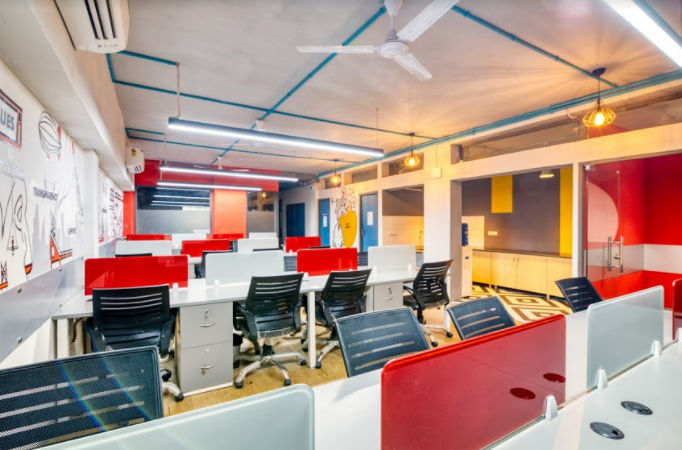YOUR OFFICE NEEDS TO BE AS SMART AS YOU. HERE’S WHY.
4 min read
Did you know that people, on an average, waste at least 15 minutes per day looking for a place to meet?
Work, today, is more complex than ever. However, a well-thought collection and combination of data and technology can make it simpler and less stressful. For instance, a tool or an app to find a vacant meeting room at your workplace and schedule meetings lets you collaborate without much painful pre-planning.
In the face of the new normal, companies need to adapt to the new ways of working and rethink on building an infrastructure that ensures safety and well-being besides efficient building operation and business continuity. They also realize that when the employees are free from menial tasks that drain time and energy, they are naturally able to focus better on more meaningful work.
Many offices are already utilizing technology to build an infrastructure that is flexible and responsive to the needs of the people owing to the current situation in the world. This smart and well-connected setup not only lets the employees return to the workplace with trust, but also communicates the new regulations and processes and ensures they are adhered to as well.
In the modern corporate era, a crucial question to ask is how well is your workspace performing for you to perform well in your workspace? When your workspace displays similar features as your employees- adaptive, intuitive, and dynamic- it becomes a part of your team, and intelligent collaboration automatically follows.
A smart office is a workplace where modern technology is leveraged to help employees work smarter, better, and faster. Such workspaces encompass people, processes, services and things strongly integrated with technologies like, artificial intelligence, Internet of Things (IoT) which co-exist in a flexible workplace. Coworking and smart spaces, therefore, are two sides of the same coin.
Modern coworking spaces offer a lot more than state-of-the-art interiors. They support management platforms and software solutions that create an entire ‘experience’. Dr. Sonja Meyer, project manager for smart office applications at Bosch.IO, comments on how IoT technology can serve to improve and make legacy processes more efficient. She agrees that the tech can help us create unprecedented processes that deliver new added value.
A smart office creates value in different areas of the business. Here are some key reasons why smart offices are quickly becoming a trend:
- Better use of office space
Smart office solutions can be helpful in providing useful insights that let managers identify the most and least preferred areas in the office. The configuration can then be improved upon accordingly. How many times have we booked a meeting room and ended up not using it? Or maybe, booked a bigger room for a small group discussion? Smart offices can identify and even predict no-shows, thereby eliminating them and making the free space available for better utilization. Consequently, it is also easier for employees to find space for impromptu meetings. - Improves collaboration and productivity
When meetings become hassle-free, collaboration between employees is encouraged. Frequent discussions and exchange of ideas are more likely to spark creativity and ingenuity. - Talent magnet
This generation of workers does not want to feel bogged down in a workplace which operates with traditional methods. By providing smart office solutions, companies can provide an employee experience that attracts and retains them. - Enhanced wellness
With automated printers, coffee machines, etc, your staff is not sweating and stressing out doing irrelevant stuff, feels relaxed and has more time and energy for important things. Google designer and former MIT Media Lab researcher Chrisoula Kapelonis believes that as technology evolves, the future would see “smart” materials (things like light, temperature or even stress, that can be controlled or regulated externally) incorporated into workspaces. And while we aren’t quite there yet, we can use technology to map data about productivity and emotional well-being the way we track our physical health. - Quick fixes
It’s quicker and easier to report a loss or damage of any equipment anywhere in the office when there is a streamlined employee-to-facility management channel. This leads to faster repairs which is beneficial for everyone. - Efficient management of resources
Energy utilization and conservation are universal concerns. Smart space builders and service providers have well adopted energy conserving methods using smart technologies (Motion sensor technology, remote dashboard control with real-time alerts to detect faulty electrical equipment, etc.), to achieve cost saving goals and positive ROI on IoT investments.
Smart solutions identify potential sources of energy waste and enable automatic shut-off for devices during least productive and occupied durations. This inculcates energy-saving etiquettes amongst the users.
A smart office solution often generates value by saving and managing resources in three major categories; utilities (water, electricity, etc), real estate or office space (rent or cost of ownership) and payroll (sum total of all salaries in the company).



